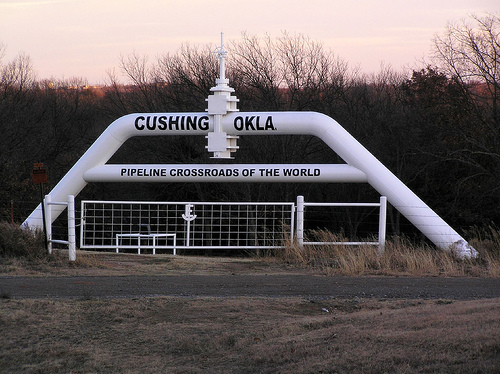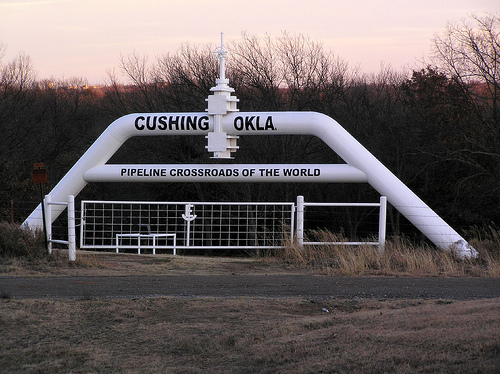In 1831, Andrew Jackson signed the Indian Removal Act, a piece of legislation that “encouraged” Native Americans to head away from their traditional land in the east and Plains states. The rationale was heavily economic — the final stop for most tribes, Oklahoma, was dusty, dry, and poorly suited for agriculture. Not worth much of anything.
But that was before Oklahoma became a major player in the oil industry, both for the deposits underground and the pipelines that run above.
Now TransCanada is in the tricky situation of dealing with Native American tribes as it tries to build the recently approved southern leg of its Keystone XL pipeline. The pipeline route from Cushing, Okla., to south Texas stretches across the historic territory of numerous tribes, though the pipeline would be built on private land.
From the Washington Post:
George Thurman, chairman of the Sac and Fox Nation and a descendent of Black Hawk, is worried that the pipeline could dig up unmarked graves or other sacred archaeological sites even on private lands.
“There are mass graves where people were buried after dying of smallpox,” Thurman said … “There could be another buried out there.”
His aide for cultural and historic preservation, Sandra Massey, added: “How many times do we have to move? Our dead are never at rest.” …
“Some things are sensitive to us. If they want to go through a grave, the ground around it may be sacred, too,” Massey said, shaking her head. “We’re all wary. We don’t trust anybody.”
Tribes are also (justifiably) concerned about the environmental impact.
Massey also worries about leaks. In the 1960s, saltwater flooding resulting from Tenneco’s failure to properly plug abandoned wells contaminated Sac and Fox drinking water and destroyed land and pecan groves. Three federal agencies joined the tribe in a lawsuit and the pipeline company El Paso (which bought Tenneco) agreed in 1997 to dig wells, provide potable water and plant trees. The wells still provide water to the tribe.
TransCanada is working with tribes to address these concerns (at least the cultural ones), but it’s clear that the company would like to be moving more quickly. It’s also clear that its commitment to cooperating with the tribes is not terribly deep.
“There is no legal obligation to work with the tribes,” said Lou Thompson, TransCanada’s top liaison with Native Americans. “We do it because we have a policy. We believe it’s a good, neighborly thing to do.”
The tribes can be forgiven if they’re a bit skeptical of the new neighbors’ claims that they have the tribe’s best interests at heart. Maybe in another 181 years, that argument will be easier to swallow.





